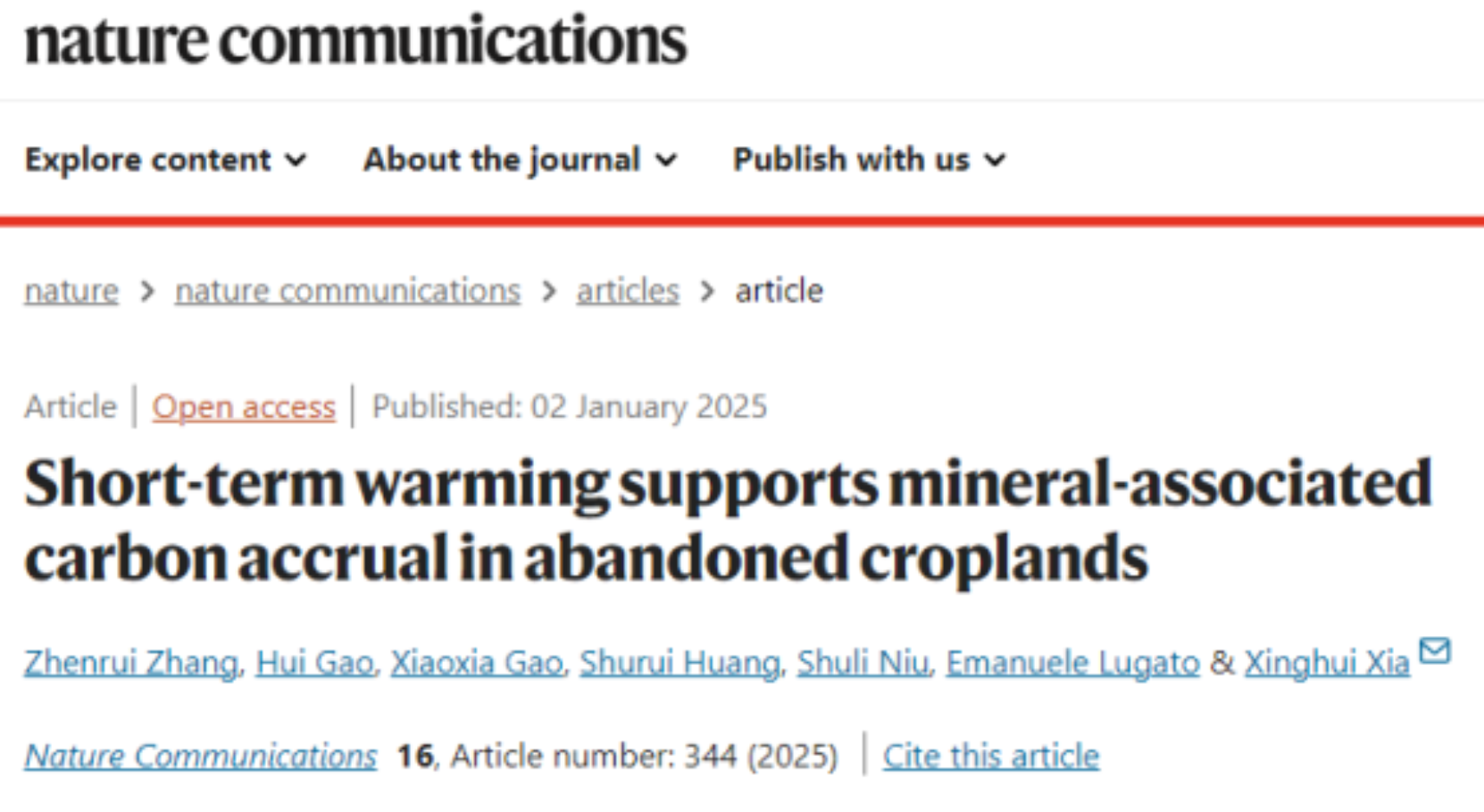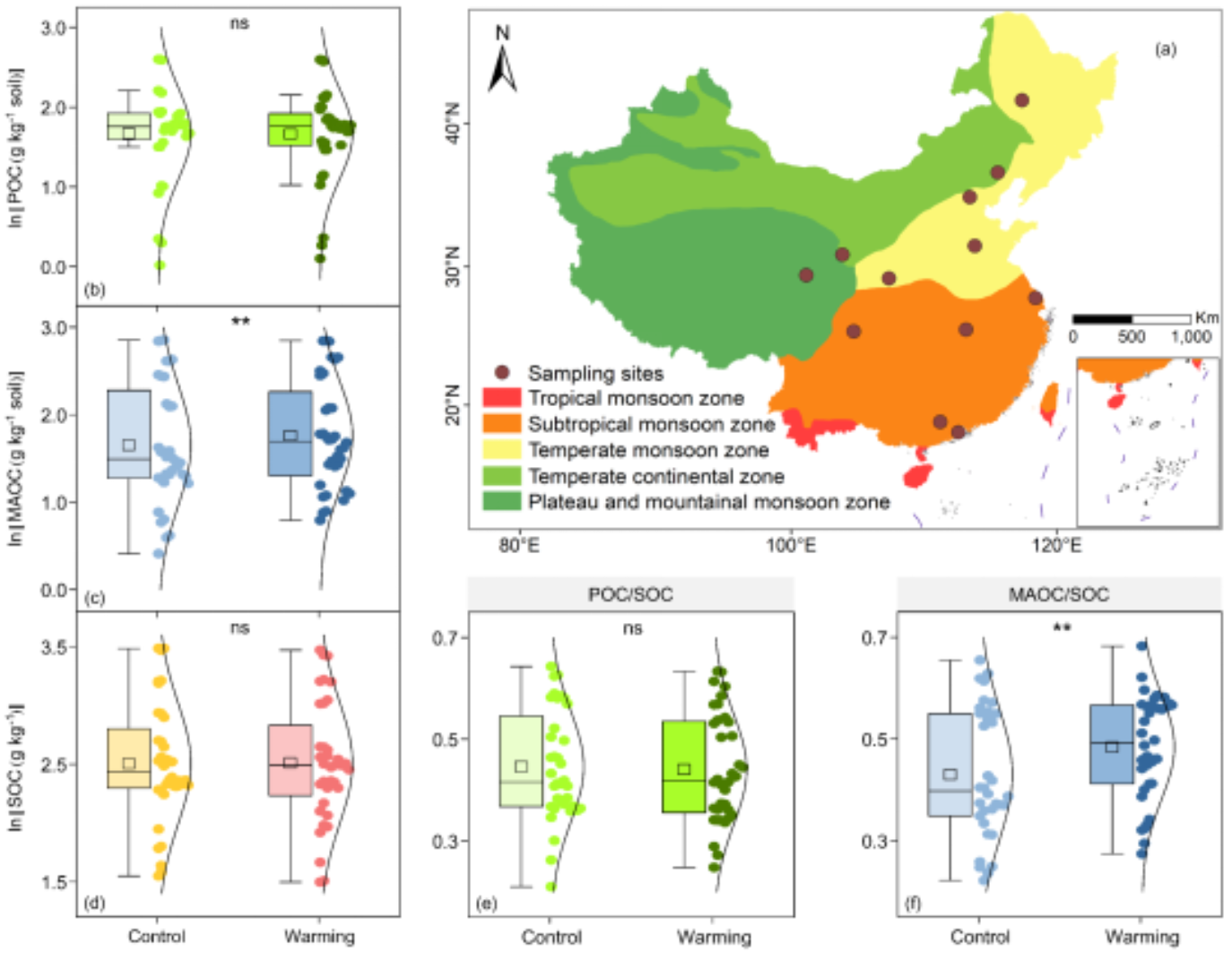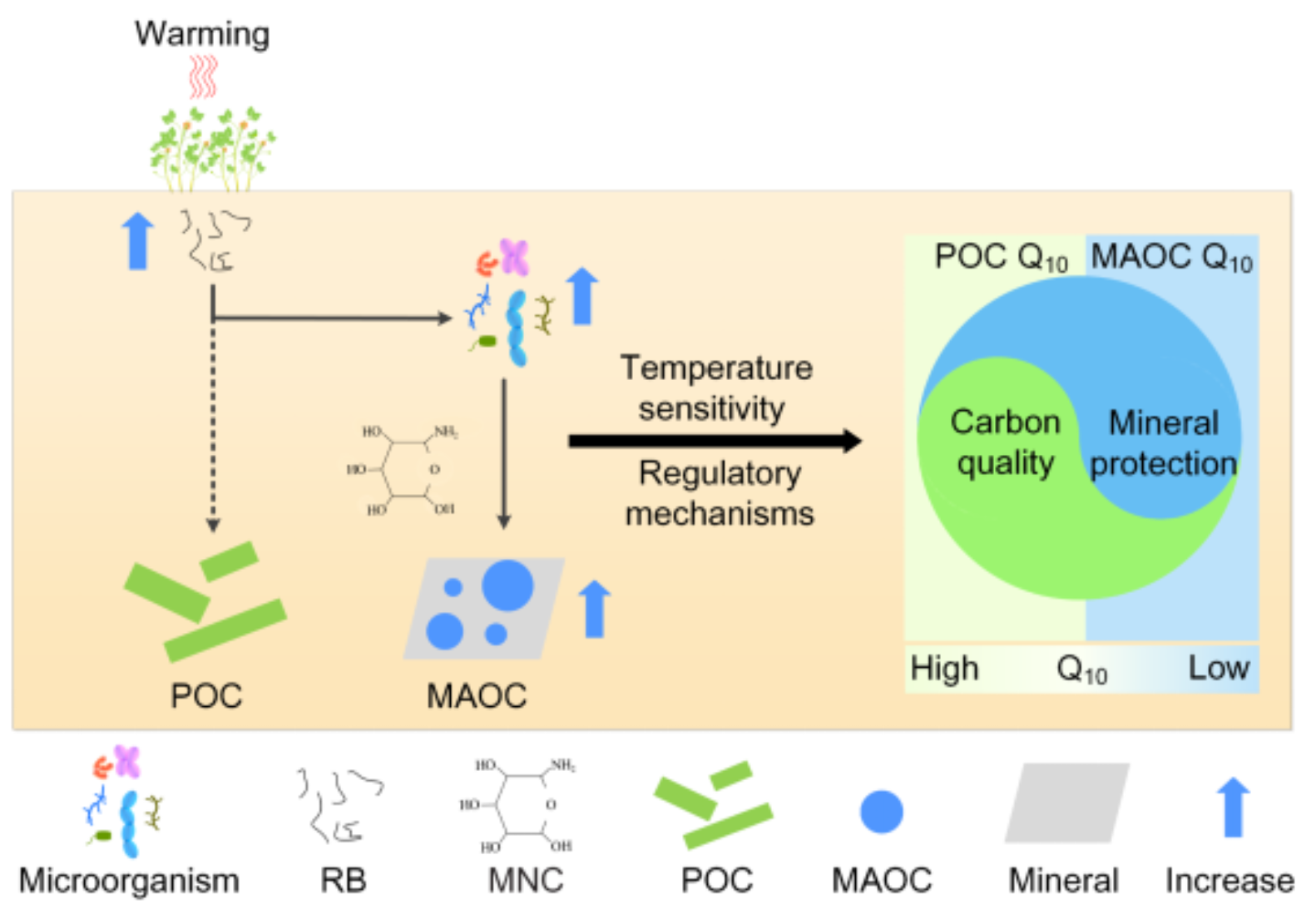Professor Xia Xinghui and His Team from the School of Environment at Beijing Normal University Published a Research Paper in Nature Communications
On January 2nd, Professor Xia Xinghui and his team from the School of Environment, Beijing Normal University, published a research paper titled "Short-term warming supports mineral-associated carbon accrual in abandoned croplands" in Nature Communications, a subsidiary journal of Nature.

The abstract of the paper is as follows:
Effective soil organic carbon (SOC) management can mitigate the impact of climate warming. However, the response of different SOC fractions to warming in abandoned croplands remains unclear. Here, categorizing SOC into particulate and mineral-associated organic carbon (POC and MAOC) with physical fractionation, we investigate the responses of POC and MAOC content and temperature sensitivity (Q10) to warming through a 3-year in situ warming experiment (+1.6 °C) in abandoned croplands across 12 sites in China (latitude: 22.33–46.58°N). Our results indicate that POC content remains unchanged while MAOC content significantly increases under warming. POC and MAOC content changes are mainly influenced by root biomass and microbial necromass carbon changes, respectively. The Q10 of MAOC is significantly lower than that of POC regardless of the warming or control treatment, suggesting that MAOC represents the most persistent and least vulnerable carbon fraction within SOC. Collectively, the sequestration of stable soil carbon can be enhanced in abandoned croplands under short-term warming.


The School of Environment, Beijing Normal University (BNU) is the primary institution. Zhang Zhenrui, a former doctoral graduate from BNU who is currently a postdoctoral researcher at the Institute of Geographic Sciences and Natural Resources Research, Chinese Academy of Sciences, is the first author of the paper. Xia Xinghui is the corresponding author. Collaborators on the paper include Gao Hui, a doctoral candidate, and Huang Shurui, a master's candidate, both from the School of Environment of BNU, Gao Xiaoxia, a lecturer at the School of Ecology and Nature Conservation, Beijing Forestry University, Niu Shuli, a researcher at the Institute of Geographic Sciences and Natural Resources Research, Chinese Academy of Sciences and Emanuele Lugato, a professor at the Joint Research Centre of the European Commission. The research was funded by the National Natural Science Foundation of China, the National Key Research and Development Program, and other projects.
Full text link:


